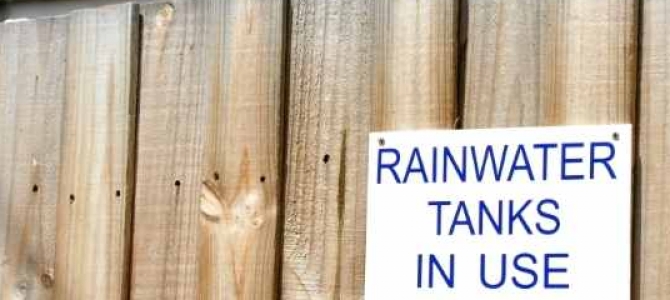 Shopping Cart
Shopping Cart
16 October 2025
Can you collect rainwater in NZ?

Collecting rainwater is fully legal in New Zealand. Homeowners can harvest roof water to save money, reduce mains water demand, and support environmental sustainability safely.
We recently wrote a post asking Should New Zealand be more proactive in collecting rainwater? but we want to backtrack a little and talk about whether we can collect rainwater in New Zealand and some of the benefits of doing so.
No matter where you live in the world, it is possible to collect rainwater, however, in some countries and states, there are laws that restrict the collection of rainwater. There are, however, no restrictions on the collection of rainwater in New Zealand, and we should, in fact, be doing more to collect the precious natural resource that falls from the skies.
Collecting rainwater has a number of benefits that we will talk about later in this post. One of the main benefits, however, is the impact on the environment. Rainwater tanks, no matter how big or small, help to protect the environment from the effects of excess stormwater runoff and they can retain the water for future use.
Is Rainwater Collection Legal in New Zealand?
Collecting rainwater from your roof is fully legal across New Zealand for residential properties. There are no nationwide restrictions, and many councils, especially in urban centres like Auckland, are vigorously encouraging rainwater tank installation as a way to alleviate pressure on the central mains water system and reduce urban stormwater runoff. By comparison, some parts of the world, like Colorado, USA, historically restricted rainwater collection, but NZ law remains clear: homeowners are permitted, and in some areas, guided or even required, to install tanks.
Council Policies and New Regulations
- Auckland Council: As of 2025, resource consent is no longer required for most residential and rural rainwater tanks (unless you intend to use rainwater as your main household water source, which then requires a building consent due to plumbing connections). This proactive change removes significant cost and bureaucracy, making sustainability more accessible. There are further reviews ongoing to require tanks in all new residential developments.
- Regional differences: While 21 out of 66 councils are actively supporting rainwater tank uptake (with a few offering subsidies, e.g., Masterton, Carterton, and parts of the Kāpiti Coast), over 40 remain neutral, and some, like Gore, have mandatory new build tank requirements with minimum capacity.
- National Building Code: NZ Building Code G12 requires tanks plumbed into homes for potable use to be installed by a certifying plumber and protected from backflow contamination. Tanks larger than 2,000 litres (or 500L if installed above 4m) may need consents depending on placement.
Why you should consider collecting rainwater on your property
Across New Zealand, the changing climate, and the growing urbanisation around some of our major cities, in particular in Auckland, means that there is increased pressure on the central mains water system.
Environmental Impact
Urbanisation accelerates water runoff into stormwater networks, leading to erosion and strain on infrastructure. Rainwater tanks slow this flow, reducing peak load on stormwater drains, mitigating flooding, and preserving precious freshwater for times of drought. Studies by Watercare (Auckland’s water utility) show that ambitious tank uptake could supply up to 16% of the city’s drought water demand by 2050.
Financial Savings
- Lower bills: Using rainwater for garden irrigation, car washing, toilet flushing, or, with appropriate treatment, for drinking and cooking can reduce household mains water charges.
- Emergency resilience: Tanks help families weather supply interruptions during natural disasters and droughts, a resilience recently highlighted by Kāpiti Coast’s emergency water storage programme.
- Increasing property value: Homes with sustainable features like rainwater tanks are increasingly attractive to buyers seeking economic and environmental future-proofing.
Sustainable Development and Broader Impact
Rainwater harvesting directly contributes to several UN Sustainable Development Goals (SDGs), notably clean water and climate action. It supports water security and can help buffer communities against the growing risks of water scarcity.
Benefits of collecting rainwater
We’ve already talked about some of the broader benefits of installing a water tank on your property, however, let’s take a closer look at some of the benefits for you, as well as the environment:
· Provides you with a sustainable source of water, even when water restrictions are in place.
· Saves money on your water bill by using rainwater collected from your roof to water the garden, wash the car, flush the toilet, or in some cases, shower, drink and cook with.
· Reduces the strain on the stormwater runoff system.
· Reduces the strain on the mains water supply, making more water available to those who cannot install a water tank.
· Some people prefer to use natural water rather than water that has been treated in mains supplied water. Water varies by region, and some find water to be soft, or hard, or has a metallic taste. Rainwater harvested from your roof provides an attractive alternative.
Should I install a water tank as part of a new build?
In New Zealand, we are still not doing enough to collect rainwater across our regions, although changes are starting to happen.
In a previous post, we looked at some of the councils around the country that are proactively encouraging people to install water tanks. In a piece of research carried out by Stuff, they found that, out of 66 territorial authorities, 40 councils were neutral when it came to encouraging the use of rainwater, 21 could be classed as supportive, and only a few – including Masterton and Carterton – offered assistance such as discounts on tanks.
In Gore, all new residential buildings are required to install a rainwater tank with a minimum capacity of 3,000 litres.
Auckland is trying to make a shift and Auckland Council has removed resource consent fees for the installation of rainwater tanks at residential properties. A further change to the unitary plan is currently under review and this would see water tanks being a requirement for all new residential property developments. This would represent a huge step forward in terms of increasing the number of water tanks in Auckland, helping to reduce the strain on the mains water supply and hopefully helping to avoid the tough water restrictions that were in place from February 2020 to November 2021.
Of course, if you are building a residential property yourself, you have the perfect opportunity to install a water tank as part of the build. Many people opt for underground water tanks as they are better aesthetically, however, new designs and slimline tanks mean that above ground water tanks are becoming a more viable option for new builds or retrospective fitting at properties throughout the country.
Key Considerations When Installing a Water Tank
Sizing and Usage
- Capacity: For full household supply in rural settings, tanks of 20,000-50,000 litres are typical. Urban users often choose smaller, slimline tanks for outdoor or non-potable uses.
- Placement: Aboveground and underground tanks both have pros and cons - modern designs can suit almost any property aesthetic.
- Maintenance: Regular cleaning and fitting first-flush diverters and screens are essential to maintain water quality and tank longevity.
Safety and Treatment
Rainwater is generally soft, less acidic in New Zealand than in many developed countries, and safe for consumption when properly filtered and treated. Recent regulatory changes (Water Services Act 2021 and amendments in 2025) require cartridge filtration and UV disinfection for self-supplied drinking water systems, with stricter standards for larger installations or those serving public buildings.
Managing your water usage and storage
If you are thinking about installing a water tank, or you already have one on your property, and you are not sure how to manage and monitor the amount of water you are collecting, storing and using, we have the perfect solution.
At Smart Water, we have engineered the most advanced tank level indicator available that now offers full cloud connectivity.
Easy to install yourself, your Smart Water tank indicator provides you with all the information you need from our app or from one of our LCD displays. Find out how much water you consume on average from your tank, accurate pressure data and estimates on when your tank will run out of water based on current usage.
Our Smart Water system can tell you how much water you have collected in your tank and over time, you will be able to calculate how much money you have saved by harvesting rainwater from your roof.
Find out more about our range of products or check out our FAQs for more information.
Related Posts
· Is it worth getting a water tank?
· What size water tank do I need?
· How do I measure the water level in my tank?
· Is it illegal to collect rainwater in the US?
Collecting Rainwater FAQs
Since we published this post in 2021, we have received a lot of interest from people asking about collecting water here in New Zealand and so we have pulled some of those questions together to help people to find out more. Here are some of the frequently asked questions when it comes to collecting rainwater here in New Zealand:
Is it illegal to collect rainwater?
Not in New Zealand. Anyone is legally permitted to collect the water that falls on their property here in New Zealand, and in fact, people are actively encouraged to do so as a way of helping to improve the overall ecosystem here in New Zealand.
The reason why this is such a popular question is that collecting rainwater is illegal in Colorado in the United States of America. Long-written laws prohibit inhabitants of Colorado from harvesting the rainwater that falls on their property as it is considered theft from other resources further down the water supply. We plan to write a follow up piece to this question, with a specific focus on our US market.
Do I need consent to install a rainwater tank in Auckland?
You don’t need a resource consent for most aboveground tanks (for garden or non-potable use), but plumbing rainwater indoors or installing large tanks may require a building consent.
Is it safe to drink rainwater in NZ?
It is safe to drink rainwater in New Zealand, as long as you have the right filtration and purifying solutions in place. As rainwater tanks become increasingly popular once again in New Zealand, more and more people are turning to rainwater for their day-to-day needs, including drinking.
If you are planning on using the rainwater you collect in your tank for potable purposes such as washing, cooking and drinking, it is important to put in place filtering and purifying solutions to ensure the water you are drinking is safe for human consumption. You can read more about filtering and purifying the rainwater you collect in our blog post - How long can you store rainwater for drinking?
What is the pH of rainwater in NZ?
Here in New Zealand, rainwater has a typical pH value of somewhere between 5 and 6. Due to our low levels of pollution, rainwater that falls in New Zealand tends to be more neutral than in other places around the world. Across Europe and the USA, rainwater pH has been known to measure between 3 and 5, which puts it slightly more on the acidic side.
If you are planning on capturing the rain that falls on your roof, your garden will thank you for it in the dry summer months. Whilst watering with mains water is definitely better than not watering at all, mains water tends to be slightly more acidic, which is not as good for your plants. Have you ever noticed how much greener your garden is after it rains compared to watering from a hose?
Post first published on 4 November 2022 and last updated 16 October 2025
